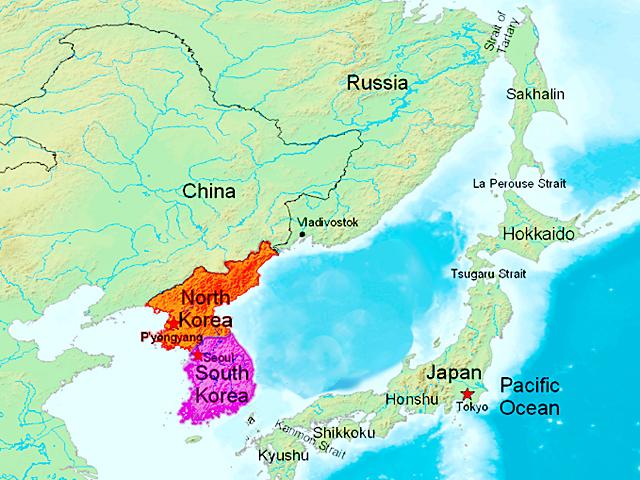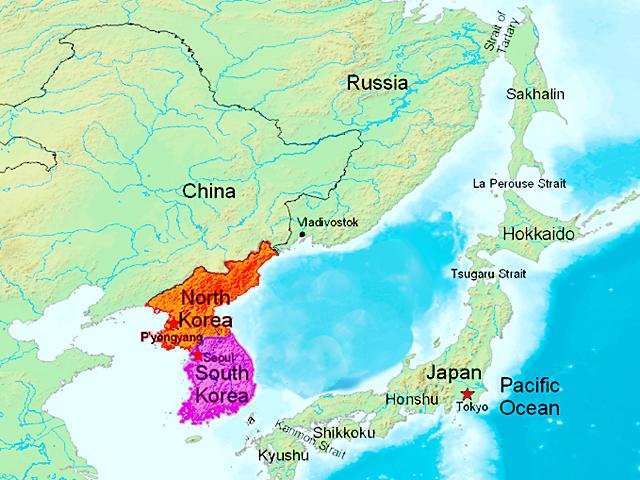An Urban's Rural View
Why an Important US Ally Has Been Thinking About the Bomb
If, like most Americans, you don't pay much attention to South Korean politics, you might have been surprised by the announcement Joe Biden and South Korea's Yoon Suk-yeol made when Yoon visited Washington in April.
The two presidents issued a "Washington Declaration" that gives South Korea a say in any U.S. use of nuclear weapons on the Korean peninsula and commits the South Koreans not to develop their own nukes. (https://www.whitehouse.gov/…)
It's fair to say most Americans were unaware that the South Koreans were thinking about getting the bomb. But they were, and though Yoon signed, it's by no means certain that the declaration has extinguished those thoughts.
South Korea is an important country for U.S. farmers and ranchers. It's the No. 6 overseas market for U.S. ag products, having bought $9.34 billion worth in 2022. Whereas many countries only import commodities from the U.S., the South Koreans' biggest purchase, to the tune of $2.7 billion, was a value-added product, beef. (https://www.fas.usda.gov/…)
More broadly, South Korea is a solid U.S. ally, a free-market democracy that both hosts 28,000 American troops on its soil and has sent its own troops to fight with the U.S. in Vietnam, Iraq and Afghanistan. It paid 90% of the $10.8 billion to build up the base south of Seoul used by U.S. troops. (https://www.armytimes.com/…) According to Pew Research Center, 89% of South Koreans have a favorable view of the U.S., the most in Asia and second worldwide only to Poland. (https://www.pewresearch.org/…)
Despite the strong ties, President Yoon was talking earlier this year about developing nukes. Polls indicate 71% of South Koreans are in favor.
P[L1] D[0x0] M[300x250] OOP[F] ADUNIT[] T[]
(https://www.washingtonpost.com/… andhttps://thebulletin.org/…)
Think about that: The South Korean public views the U.S. favorably but prefers not to rely on the U.S. nuclear umbrella.
It's not hard to guess why. The unimpressive U.S. withdrawal from Afghanistan couldn't have inspired confidence in South Korea. There's also concern that a re-elected Donald Trump might again push to withdraw U.S. troops from South Korea. And with North Korea having missiles capable of reaching the continental U.S., South Koreans naturally wonder: Would the U.S. put San Francisco at risk to save Seoul?
U.S. reliability was also in question the last time South Korea contemplated developing nukes. That was during the 1970s, when the U.S. was pulling out of South Vietnam and Cambodia. Seoul backed off when Washington said South Korea could either have a U.S. alliance or nuclear weapons but not both. Seoul chose the alliance.
Back then, South Korea was a poor developing country ruled by a dictator. Today it's a developed country that elects its rulers. For some South Koreans, having nuclear weapons is as much about national prestige as security. Their starving, backward cousins to the north have nukes. Why shouldn't they?
Perhaps as important as worries about U.S. reliability is the increasing seriousness of the threat. North Korea is clearly not going to be talked out of its nukes. The U.S. has all but stopped trying.
Would it really be such a bad thing if South Korea developed its own nuclear weapons? It would clearly be a blow to nuclear nonproliferation, a policy supported by every president for the last seven decades, including Trump.
Although that policy hasn't stopped proliferation, it has limited it. In the early 1960s, President John F. Kennedy predicted that by 1975, 10 to 20 countries would have nuclear weapons. The world only got to nine recently, when North Korea got the bomb.
A devil's advocate might say, "Let mutually Assured Destruction work its magic." India and Pakistan defied the nuclear nonproliferation consensus and neither has used nukes against the other. Might not a South Korean bomb actually lessen the risk of nuclear catastrophe by deterring North Korea?
Non-proliferation advocates have a ready answer. The greater the number of countries that have nuclear weapons, the greater the chances of a nuclear catastrophe, whether owing to accident or miscalculation or the increased risk of terrorists getting nukes. President Biden has stressed that the U.S. umbrella provides deterrence, vowing that any North Korean nuclear attack on the U.S. or its allies would "result in the end" of the regime in Pyongyang. (https://www.nytimes.com/…)
By offering South Korea more say in the use of U.S. weapons, the Biden administration hopes to prevent yet another country from going nuclear. Graham Allison, a noted Harvard expert, calls the Washington Declaration a "big deal." (https://foreignpolicy.com/…) Whether it's a big enough deal to head off further nuclear proliferation remains to be seen.
Urban Lehner can be reached at urbanize@gmail.com
(c) Copyright 2023 DTN, LLC. All rights reserved.






Comments
To comment, please Log In or Join our Community .